02/12/2010
GALOIS THEORY
GALOIS THEORY
Excerpted from Beachy/Blair, Abstract Algebra, 2nd Ed., © 1996Chapter 8
- 8.1 The Galois group of a polynomial
- 8.2 Multiplicity of roots
- 8.3 The fundamental theorem of Galois theory
- 8.4 Solvability by radicals
- 8.5 Cyclotomic polynomials
- 8.6 Computing Galois groups
Forward | Back | Table of Contents | About this document
The Galois group of a polynomial
To study solvability by radicals of a polynomial equation f(x) = 0, we let K be the field generated by the coefficients of f(x), and let F be a splitting field for f(x) over K. Galois considered permutations of the roots that leave the coefficient field fixed. The modern approach is to consider the automorphisms determined by these permutations. We note that any automorphism of a field F must leave its prime subfield fixed.8.1.1. Proposition. Let F be an extension field of K. The set of all automorphisms  : F -> F such that
: F -> F such that  (a) = a for all a in K is a group under composition of functions.
(a) = a for all a in K is a group under composition of functions.
8.1.2. Definition. Let F be an extension field of K. The set
{ 
 Aut(F) |
Aut(F) |  (a) = a for all a
(a) = a for all a  K }
K }
8.1.3. Definition. Let K be a field, let f(x)  K[x], and let F be a splitting field for f(x) over K. Then Gal(F/K) is called the Galois group of f(x) over K, or the Galois group of the equation f(x) = 0 over K.
K[x], and let F be a splitting field for f(x) over K. Then Gal(F/K) is called the Galois group of f(x) over K, or the Galois group of the equation f(x) = 0 over K.
8.1.4. Proposition. Let F be an extension field of K, and let f(x)  K[x]. Then any element of Gal(F/K) defines a permutation of the roots of f(x) that lie in F.
K[x]. Then any element of Gal(F/K) defines a permutation of the roots of f(x) that lie in F.
8.1.5. Lemma. Let f(x)  K[x] be a polynomial with no repeated roots and let F be a splitting field for f(x) over K. If
K[x] be a polynomial with no repeated roots and let F be a splitting field for f(x) over K. If  : K -> L is a field isomorphism that maps f(x) to g(x)
: K -> L is a field isomorphism that maps f(x) to g(x)  L[x] and E is a splitting field for g(x) over L, then there exist exactly [F:K] isomorphisms
L[x] and E is a splitting field for g(x) over L, then there exist exactly [F:K] isomorphisms  : F -> E such that
: F -> E such that  (a) =
(a) =  (a) for all a in K.
(a) for all a in K.
8.1.6. Theorem. Let K be a field, let f(x)  K[x], and let F be a splitting field for f(x) over K. If f(x) has no repeated roots, then |Gal(F/K)| = [F:K].
K[x], and let F be a splitting field for f(x) over K. If f(x) has no repeated roots, then |Gal(F/K)| = [F:K].
8.1.7. Corollary. Let K be a finite field and let F be an extension of K with [F:K] = m. Then Gal(F/K) is a cyclic group of order m.
Multiplicity of roots
8.2.1. Definition. Let f(x) be a polynomial in K[x], and let F be a splitting field for f(x) over K. If f(x) has the factorizationf(x) = (x - r1)m1 (x - r2)m2 · · · (x - rt)mt
over F, then we say that the root ri has multiplicity mi.If mi=1, then ri is called a simple root.
8.2.2. Definition. Let f(x)  K[x], with f(x) =
K[x], with f(x) = 
 ak xk. The formal derivative f'(x) of f(x) is defined by the formula
ak xk. The formal derivative f'(x) of f(x) is defined by the formula
f'(x) = 
 k ak xk-1,
k ak xk-1,
8.2.3. Proposition. The polynomial f(x) in K[x] has no multiple roots if and only if gcd(f(x),f'(x)) = 1.
8.2.4. Proposition. Let f(x) be an irreducible polynomial over the field K. Then f(x) has no multiple roots unless chr(K) = p  0 and f(x) has the form
0 and f(x) has the form
f(x) = a0 + a1 xp + a2 x2p + · · · + an xnp.
8.2.5. Definition. A polynomial f(x) over the field K is called separable if its irreducible factors have only simple roots.An algebraic extension field F of K is called separable over K if the minimal polynomial of each element of F is separable.
The field F is called perfect if every polynomial over F is separable.
8.2.6. Theorem. Any field of characteristic zero is perfect. A field of characteristic p>0 is perfect if and only if each of its elements has a pth root.
8.2.7. Corollary. Any finite field is perfect.
8.2.8. Theorem. Let F be a finite extension of the field K. If F is separable over K, then it is a simple extension of K.
The fundamental theorem of Galois theory
8.3.1. Proposition. Let F be a field, and let G be a subgroup of Aut(F). Then{ a  F |
F |  (a) = a for all
(a) = a for all 
 G }
G }
8.3.2. Definition. Let F be a field, and let G be a subgroup of Aut (F). Then
{ a  F |
F |  (a) = a for all
(a) = a for all 
 G }
G }
8.3.3. Proposition. If F is the splitting field over K of a separable polynomial and G = Gal(F/K), then FG = K.
8.3.4. Lemma. [Artin] Let G be a finite group of automorphisms of the field F, and let K = FG. Then
[F:K]  | G |.
| G |.
8.3.6. Theorem. The following conditions are equivalent for an extension field F of K:
- (1) F is the splitting field over K of a separable polynomial;
- (2) K = FG for some finite group G of automorphisms of F;
- (3) F is a finite, normal, separable extension of K.
Example. 8.3.1. The Galois group of GF(pn) over GF(p) is cyclic of order n, generated by the automorphism  defined by
defined by  (x) = xp, for all x in GF(pn). This automorphism is usually known as theFrobenius automorphism of GF(pn).
(x) = xp, for all x in GF(pn). This automorphism is usually known as theFrobenius automorphism of GF(pn).
8.3.8. Theorem. [Fundamental Theorem of Galois Theory] Let F be the splitting field of a separable polynomial over the field K, and let G = Gal(F/K).
- (a) There is a one-to-one order-reversing correspondence between subgroups of G and subfields of F that contain K:
- (i) If H is a subgroup of G, then the corresponding subfield is FH, and
H = Gal(F/FH).
-
(ii) If E is a subfield of F that contains K, then the corresponding subgroup of G is H = Gal(F/E), and
E = FH.
- (i) If H is a subgroup of G, then the corresponding subfield is FH, and
- (b) For any subgroup H of G, we have
[F:FH] = | H | and [FH:K] = [G:H].
- (c) Under the above correspondence, the subgroup H is normal if and only if the subfield E = FH is a normal extension of K. In this case,
Gal(E/K)
 Gal(F/K) / Gal(F/E).
Gal(F/K) / Gal(F/E).
 (E)
(E)  E for all
E for all in Gal(F/K). In the context of the fundamental theorem, we say that two intermediate subfields E1 and E2 are conjugate if there exists
in Gal(F/K). In the context of the fundamental theorem, we say that two intermediate subfields E1 and E2 are conjugate if there exists 
 Gal(F/K) such that
Gal(F/K) such that  ( E1 ) = E2. We now show that the subfields conjugate to an intermediate subfield E correspond to the subgroups conjugate to Gal(F/E). Thus E is a normal extension if and only if it is conjugate only to itself.
( E1 ) = E2. We now show that the subfields conjugate to an intermediate subfield E correspond to the subgroups conjugate to Gal(F/E). Thus E is a normal extension if and only if it is conjugate only to itself.
8.3.9. Proposition. Let F be the splitting field of a separable polynomial over the field K, and let E be a subfield such that K  E
E  F, with H = Gal(F/E). If
F, with H = Gal(F/E). If 
 Gal(F/K), then
Gal(F/K), then
Gal(F/ (E)) =
(E)) =  H
H  -1.
-1.
Solvability by radicals
In most results in this section we will assume that the fields have characteristic zero, in order to guarantee that no irreducible polynomial has multiple roots. When we say that a polynomial equation is solvable by radicals, we mean that the solutions can be obtained from the coefficients in a finite sequence of steps, each of which may involve addition, subtraction, multiplication, division, or taking nth roots. Only the extraction of an nth root leads to a larger field, and so our formal definition is phrased in terms of subfields and adjunction of roots of xn-a for suitable elements a.8.4.1. Definition. An extension field F of K is called a radical extension of K if there exist elements u1, u2, ... , um in F such that
- (i) F = K (u1, u2, ... , um), and
-
(ii) u1n1
 K and uini
K and uini  K ( u1, ... , ui-1 ) for i = 2, ... , m and n1, n2, ... , nm
K ( u1, ... , ui-1 ) for i = 2, ... , m and n1, n2, ... , nm  Z.
Z.
 K[x], the polynomial equation f(x) = 0 is said to be solvable by radicals if there exists a radical extension F of K that contains all roots of f(x).
K[x], the polynomial equation f(x) = 0 is said to be solvable by radicals if there exists a radical extension F of K that contains all roots of f(x).
8.4.2. Proposition. Let F be the splitting field of xn - 1 over a field K of characteristic zero. Then Gal(F/K) is an abelian group.
8.4.3. Theorem. Let K be a field of characteristic zero that contains all nth roots of unity, let a  K, and let F be the splitting field of xn-a over K. Then Gal(F/K) is a cyclic group whose order is a divisor of n.
K, and let F be the splitting field of xn-a over K. Then Gal(F/K) is a cyclic group whose order is a divisor of n.
8.4.4. Theorem. Let p be a prime number, let K be a field that contains all pth roots of unity, and let F be an extension of K. If [F:K] = |Gal(F/K)| = p, then F = K(u) for some u  F such that up
F such that up  K.
K.
8.4.5. Lemma. Let K be a field of characteristic zero, and let E be a radical extension of K. Then there exists an extension F of E that is a normal radical extension of K.
8.4.6. Theorem. Let f(x) be a polynomial over a field K of characteristic zero. The equation f(x) = 0 is solvable by radicals if and only if the Galois group of f(x) over K is solvable.
Theorem 7.7.2 shows that Sn is not solvable for n  5, and so to give an example of a polynomial equation of degree n that is not solvable by radicals, we only need to find a polynomial of degree n whose Galois group over Q is Sn.
5, and so to give an example of a polynomial equation of degree n that is not solvable by radicals, we only need to find a polynomial of degree n whose Galois group over Q is Sn.
8.4.7. Lemma. Any subgroup of S5 that contains both a transposition and a cycle of length 5 must be equal to S5 itself.
8.4.8. Theorem. There exists a polynomial of degree 5 with rational coefficients that is not solvable by radicals.
Cyclotomic polynomials
8.5.1. Definition. Let n be a positive integer, and let be the complex number
be the complex number  = cos
= cos  + i sin
+ i sin  , where
, where  = 2
= 2  / n. The polynomial
/ n. The polynomial
 n (x) =
n (x) =  k (x -
k (x -  k),
k),
8.5.2. Proposition. Let n be a positive integer, and let  n(x) be the nth cyclotomic polynomial. The following conditions hold:
n(x) be the nth cyclotomic polynomial. The following conditions hold:
- (a) deg (
 n (x)) =
n (x)) =  (n);
(n); -
(b) xn - 1 =
 d | n
d | n  d (x);
d (x); -
(c)
 n (x) is monic, with integer coefficients.
n (x) is monic, with integer coefficients.
 n(x) is irreducible over Q, for every positive integer n.
n(x) is irreducible over Q, for every positive integer n.
8.5.4. Theorem. For every positive integer n, the Galois group of the nth cyclotomic polynomial  n(x) over Q is isomorphic to Zn×.
n(x) over Q is isomorphic to Zn×.
Example. 8.5.2. A regular n-gon is constructible if and only if  (n) is a power of 2. If p is an odd prime, and
(n) is a power of 2. If p is an odd prime, and  (p) is a power of 2, then p must have the form p = 2k + 1, where k is a power of 2. Such primes are called Fermat primes. The only known examples are 3, 5, 17, 257, and 65537. This implies, for example, that a regular 17-gon is constructible.
(p) is a power of 2, then p must have the form p = 2k + 1, where k is a power of 2. Such primes are called Fermat primes. The only known examples are 3, 5, 17, 257, and 65537. This implies, for example, that a regular 17-gon is constructible.
A set that satisfies all the axioms of a field except for commutativity of multiplication is called a division ring or skew field.
8.5.6. Theorem. [Wedderburn] Any finite division ring is a field.
Computing Galois groups
8.6.1. Definition. Let G be a group acting on a set S. We say that G acts transitively on S if for each pair of elements x,y in S there exist an element g in G such that y = gx.If G is a subgroup of the symmetric group Sn, then G is called a transitive group if it acts transitively on the set { 1, 2, ... , n }.
8.6.2. Proposition. Let f(x) be a separable polynomial over the field K, with roots r1 , ... , rn in its splitting field F. Then f(x) is irreducible over K if and only if Gal(F/K) acts transitively on the roots of f(x).
8.6.3. Lemma. Let p be a prime number, and let G be a transitive subgroup of Sp. Then any nontrivial normal subgroup of G is also transitive.
8.6.4. Lemma. Let p be a prime number, and let G be a solvable, transitive subgroup of Sp. Then G contains a cycle of length p.
8.6.5. Proposition. Let p be a prime number, and let G be a solvable, transitive subgroup of Sp. Then G is a subgroup of the normalizer in Sp of a cyclic subgroup of order p.
Let f(x) be a polynomial of degree n over the field K, and assume that f(x) has roots r1, r2, ... , rn in its splitting field F. The element  of F defined by
of F defined by
 =
=  (ri - rj)2,
(ri - rj)2,
 i < j
i < j  n, is called the discriminant of f(x).
n, is called the discriminant of f(x).
It can be shown that the discriminant of any polynomial f(x) can be expressed as a polynomial in the coefficients of f(x), with integer coefficients. This requires use of elementary symmetric functions, and lies beyond the scope of what we have chosen to cover in the book.
We have the following properties of the discriminant:
- (i)

 0 if and only if f(x) has distinct roots;
0 if and only if f(x) has distinct roots; -
(ii)

 K;
K; -
(iii) If

 0, then a permutation
0, then a permutation 
 Sn is even if and only if it leaves unchanged the sign of
Sn is even if and only if it leaves unchanged the sign of
 (ri-rj) .
(ri-rj) .
 , and let F be its splitting field over K. Then every permutation in Gal(F/K) is even if and only if
, and let F be its splitting field over K. Then every permutation in Gal(F/K) is even if and only if  is the square of some element in K.
is the square of some element in K.
We now restrict our attention to polynomials with rational coefficients. The next lemma shows that in computing Galois groups it is enough to consider polynomials with integer coefficients. Then a powerful technique is to reduce the integer coefficients modulo a prime and consider the Galois group of the reduced equation over the field GF(p).
8.6.7. Lemma. Let f(x) = xn + an-1 xn-1 + · · · + a1 x + a0  Q[x], and assume that
Q[x], and assume that
ai = bi / d for d, b0, b1, ... , bn-1  Z.
Z.
Then dn f(x/d) is monic with integer coefficients, and has the same splitting field over Q as f(x).
If p is a prime number, we have the natural mapping  : Z[x] -> Zp[x] which reduces each coefficient modulo p. We will use the notation
: Z[x] -> Zp[x] which reduces each coefficient modulo p. We will use the notation  ( f(x) ) = fp(x).
( f(x) ) = fp(x).
Theorem [Dedekind]. Let f(x) be a monic polynomial of degree n, with integer coefficients and Galois group G over Q, and let p be a prime such that fp(x) has distinct roots. If fp(x) factors in Zp[x] as a product of irreducible factors of degrees n1, n2, ... , nk, then G contains a permutation with the cycle decomposition
(1,2, ... ,n1) (n1+1, n1+2, ... , n1+n2) · · · (n-nk+1, ... ,n),
relative to a suitable ordering of the roots.
07:30 Publié dans GALOIS THEORY | Lien permanent | Commentaires (0) |  |
|  del.icio.us |
del.icio.us |  |
|  Digg |
Digg | ![]() Facebook
Facebook











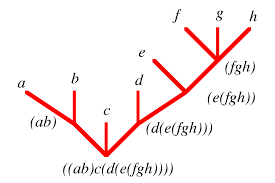

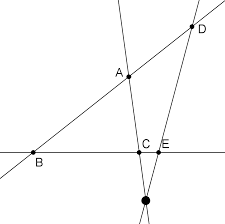

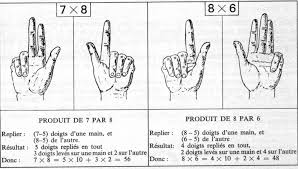


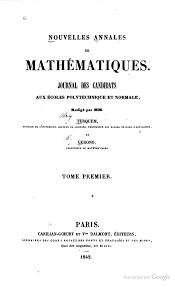





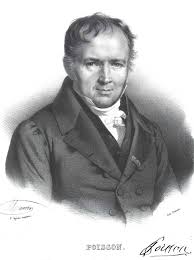

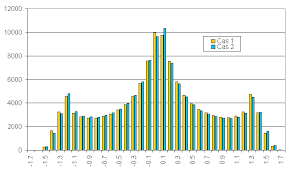
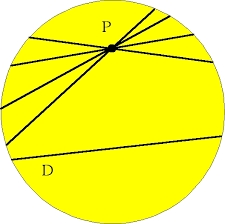


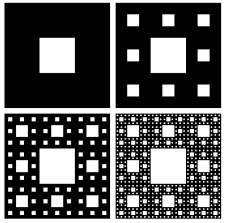
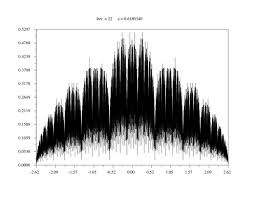
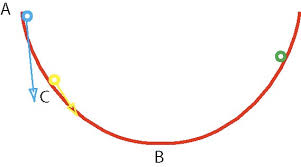





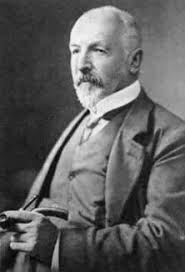

Les commentaires sont fermés.